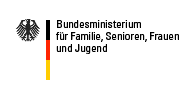Budget
Budget
Budgeting is the planning of all revenue and expenditures. Public budgets, i.e. the budgets of the Federal and State Governments and of local authorities and other public actors are of prime political importance. In budgets, funds are allocated to certain policy areas, and also limited. The main aim of budgetary planning is to achieve a balanced budget. The planned expenditures are therefore placed against the revenues necessary to cover them. It is not only, however, the financial room to manoeuvre for actors that results from budgets. Budgeting is also political planning and requires the setting of priorities.
Budgets can be gender-blind, gender neutral or gender responsive. Gender Mainstreaming demands that budgetary planning should be analysed with the effects in mind that decisions regarding revenue and expenditure have on men and women and on gender equality. On the other hand, gender blind budgets as a rule reinforce existing inequities or at least do not contribute to fostering gender equality. Gender Budgeting, or gender responsive budgetary planning, helps to avoid decisions regarding distribution which are unfavourable to gender equality. Modernisation of the administration apparatus or conversion from cameralistic to product-oriented budgeting yields opportunities for Gender Budgeting through the associated objectives, which can also include gender equality goals.
The tool of Gender Budgeting was developed in the 1990s in the international context (here you can find out more about background and development). Such initiatives exist in more than 40 countries worldwide. In Germany, too, actors have decided to plan their budgets in a gender responsive way. The Coalition Agreement between Bündnis 90/The Greens and the SPD of 16 October 2002 declared, “Gender Mainstreaming should be established in a sustained way in all departments of the Federal Government as a method for implementing Article 3 of the Basic Law. Gender Budgeting is part of that strategy.”
In Austria, too, there is a working group dealing with the introduction of a Gender Mainstreaming test procedure in the Federal Finance Ministry. The World Bank and the UN have been active in this area for a long time.
Gender Budgeting, then, implements the strategy of Gender Mainstreaming in the area of budget policy. It allows impacts on gender relations to be opened to scrutiny, changed priorities to be set and funds to be redistributed so that a gender responsive and fair budget can be drawn up. In many areas, Gender Budgeting even goes beyond a budgetary policy oriented to gender equality. In general, it can be defined as gender equality in the distribution of resources.
It can be seen that certain Gender aspects are significant again and again for budgetary planning.
Budgets can be gender-blind, gender neutral or gender responsive. Gender Mainstreaming demands that budgetary planning should be analysed with the effects in mind that decisions regarding revenue and expenditure have on men and women and on gender equality. On the other hand, gender blind budgets as a rule reinforce existing inequities or at least do not contribute to fostering gender equality. Gender Budgeting, or gender responsive budgetary planning, helps to avoid decisions regarding distribution which are unfavourable to gender equality. Modernisation of the administration apparatus or conversion from cameralistic to product-oriented budgeting yields opportunities for Gender Budgeting through the associated objectives, which can also include gender equality goals.
The tool of Gender Budgeting was developed in the 1990s in the international context (here you can find out more about background and development). Such initiatives exist in more than 40 countries worldwide. In Germany, too, actors have decided to plan their budgets in a gender responsive way. The Coalition Agreement between Bündnis 90/The Greens and the SPD of 16 October 2002 declared, “Gender Mainstreaming should be established in a sustained way in all departments of the Federal Government as a method for implementing Article 3 of the Basic Law. Gender Budgeting is part of that strategy.”
In Austria, too, there is a working group dealing with the introduction of a Gender Mainstreaming test procedure in the Federal Finance Ministry. The World Bank and the UN have been active in this area for a long time.
Gender Budgeting, then, implements the strategy of Gender Mainstreaming in the area of budget policy. It allows impacts on gender relations to be opened to scrutiny, changed priorities to be set and funds to be redistributed so that a gender responsive and fair budget can be drawn up. In many areas, Gender Budgeting even goes beyond a budgetary policy oriented to gender equality. In general, it can be defined as gender equality in the distribution of resources.
It can be seen that certain Gender aspects are significant again and again for budgetary planning.
erstellt von Administrator
—
zuletzt verändert:
02.01.2010 20:07





